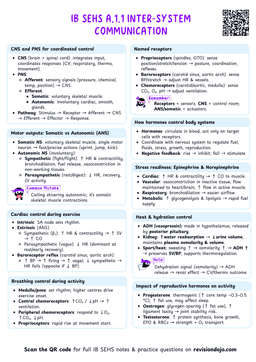High Ego Orientation Can Be Problematic if Task Orientation Is Low
Ego Orientation
Ego orientation refers to a mindset where an individual defines success primarily by comparing themselves to others, focusing on performing better than peers and demonstrating their superiority rather than on personal improvement or mastery of a task; essentially, basing their sense of achievement on external validation and social comparison
Task Orientation
Task orientation is a focus on completing tasks to achieve goals, rather than social harmony or interpersonal factors. It's often used in the workplace and in education.
- Ego orientation focuses on outperforming others.
- Task orientation emphasizes personal growth and mastery.
- When ego orientation dominates without task orientation, problems arise
A gymnast with high ego orientation might feel anxious about performing poorly in front of judges, fearing it will damage their reputation.
TipHigh ego orientation often leads to anxiety because the focus is on external validation rather than personal growth.
1. Avoidance of Challenges
- Ego-oriented individuals may avoid difficult tasks to protect their image.
- They prefer easy tasks (to ensure success) or extremely hard ones (to excuse failure).
A runner might skip a race with strong competitors, fearing they won't win and their ability will be questioned.
2. Lack of Persistence
- Without task orientation, setbacks are seen as threats to self-worth.
- This leads to giving up easily or making excuses.
A basketball player might stop practicing after missing key shots, blaming external factors instead of working to improve.
NoteDon't assume that ego orientation always leads to negative outcomes. It can be beneficial when balanced with task orientation and high perceived ability.
3. Reduced Enjoyment
- Focusing solely on outperforming others can make activities feel like pressure-filled competitions.
- This diminishes intrinsic motivation and long-term engagement.
A tennis player who only cares about winning might lose interest if they stop enjoying the game itself.
When High Ego Orientation Is Non-Problematic
- High ego orientation can be beneficial when paired with:
- High perceived ability: Confidence in skills reduces anxiety.
- Supportive environments: Coaches and teammates who focus on growth and mastery.
A confident swimmer with high ego orientation might thrive in competitions, using their desire to win as motivation.
NoteHigh ego orientation can drive success when individuals believe in their abilities and have a supportive environment. However, this balance is fragile and can easily tip toward negative outcomes if perceived ability decreases.
Protecting the Ego: Defensive Behaviors
- When ego is challenged, individuals may:
- Make excuses: Blaming external factors for poor performance.
- Avoid competition: Skipping events to protect their image.
- Devalue tasks: Claiming an activity isn't important to justify lack of effort.
A soccer player might blame the referee for a loss or claim they weren't trying their best to protect their ego and self-worth
AnalogyThink of the ego as a fragile balloon. When it's inflated by external validation (like winning), it feels strong. But without the support of task orientation (personal growth), it can easily deflate under pressure.
Balancing Ego and Task Orientation
- Develop task orientation: Focus on personal goals and improvement.
- Foster a supportive climate: Coaches should emphasize effort and mastery over winning.
- Encourage self-reflection: Athletes should evaluate their motivations and set intrinsic goals.
Balancing ego and task orientation creates a more resilient mindset, reducing anxiety and increasing long-term motivation.
1. Impact on Motivation
- Athletes with high ego orientation are motivated by external validation, such as recognition, rankings, and outperforming opponents. However, this can lead to fluctuating motivation levels, depending on their ability to succeed against competitors.
- When successful: High motivation is maintained as long as they continue winning or outperforming others.
- When unsuccessful: Motivation may drop significantly, as failure is seen as a reflection of inadequacy rather than an opportunity for growth.
A sprinter who is highly motivated when winning races but loses interest in training after finishing behind stronger competitors.
2. Fear of Failure and Avoidance Behavior
- High ego-oriented athletes often develop an intense fear of failure, as losing is perceived as a personal weakness. This fear can lead to avoidance behaviors such as:
- Competing only against weaker opponents to maintain superiority.
- Avoiding difficult challenges that might expose weaknesses.
- Reducing effort intentionally to create an excuse for poor performance (self-handicapping).
A basketball player who avoids taking crucial shots to prevent being blamed for a loss.
3. Increased Anxiety and Stress
- Since success is measured by comparison, high ego-oriented athletes experience higher stress levels, especially in competitive environments where outcomes are uncertain.
- Performance pressure can lead to overthinking and decreased concentration.
- Anxiety may negatively affect motor control and decision-making.
- Athletes may struggle with mental burnout due to constant external pressure to win.
A gymnast who consistently ranks top in training but underperforms in competition due to excessive stress and fear of failure.
4. Negative Sportsmanship and Unethical Behavior
- A strong desire to win at all costs can lead to poor sportsmanship, aggression, or unethical behaviors, such as:
- Cheating or rule-breaking to gain an advantage.
- Blaming teammates or external factors for failures.
- Lack of teamwork due to an individualistic mindset.
A soccer player diving to win a penalty rather than focusing on improving dribbling skills.
5. Strategies to Overcome High Ego Orientation Challenges
- Coaches and athletes can implement strategies to balance ego orientation with task-oriented goals for more sustainable motivation.
- Encouraging self-improvement goals rather than only focusing on competition results.
- Reframing failure as a learning experience rather than a personal shortcoming.
- Using intrinsic motivation strategies, such as setting personal performance benchmarks.
- Promoting team values to reduce excessive self-focus and increase collaboration.
How does the balance between ego and task orientation reflect broader societal values? Consider how different cultures prioritize individual achievement versus personal growth.


